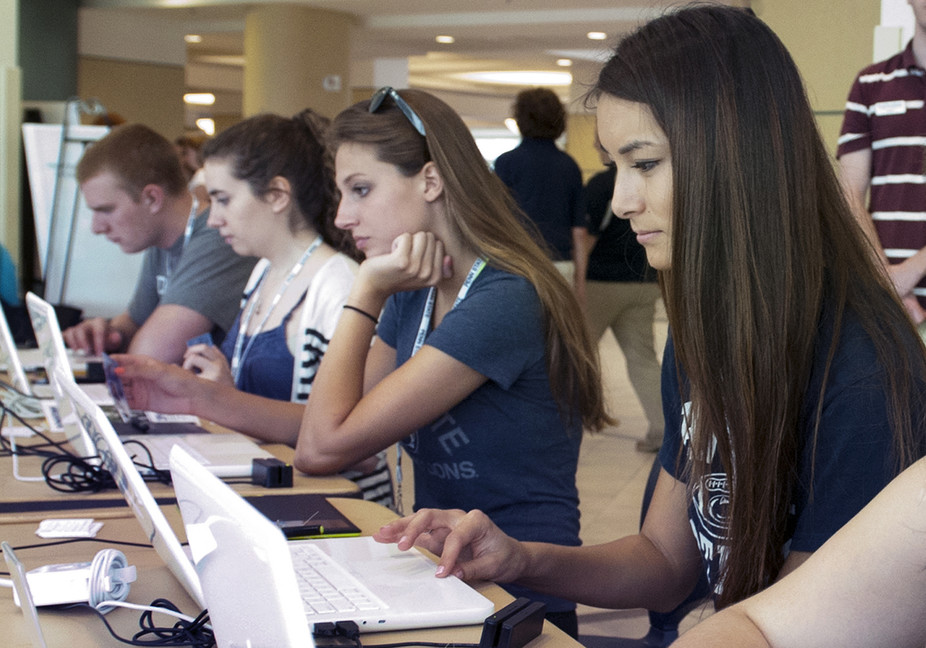4 Reasons Why Small Class Sizes Lead to Better Student Performance

Let’s play a little game. Class A has 30 students, and Class B has 15 students. The students are of equal ability and behavior, and the teachers are carbon copies of one another. Which one do you think will perform better, Class A or Class B. As you probably guessed, Class B will probably perform better because it contains a smaller number of students. But why does small class size led to better student performance? In this article, we will discuss 4 reasons why small class sizes lead to better student performance.
It reduces teacher workload. Being a teacher is arduous work. For most people, it will be one of the most challenging things that they will ever do in their lives. But what exactly makes it so difficult? Imagine having to manage 30 employees simultaneously, while also continuously training them, keeping an eye on their interactions, and keeping them safe. This is what teaching is like. As a teacher, you have to instruct, assess, remediate, correct bad behavior, referee disputes, etc. If you reduce the class size by 50%, you make a teachers job a lot easier, and in turn, they can do a better job.
It makes the classroom less chaotic. Imagine the average class. 30 students with varying degrees of temperament and intelligence, occupying the same space. Whenever you have a high density of people, you are bound to have more noise, more disagreements, and less comfortability. By no way am I saying that noise in a classroom is a bad thing, in many ways, it signals that learning is taking place, especially during group activities. But with noise comes less privacy and for some people, an inability to focus or think. With a smaller class size, there would be more privacy during group work, which could lead to higher levels of student focus, which should lead to higher levels of student performance. Also, it makes students more comfortable, as they have more room to maneuver and more personal space. Also, fewer students could mean a decrease in the number of arguments and disagreements.
More student engagement. When students have a strong relationship with their teachers, they are more likely to have high levels of academic engagement, which leads to increased student performance. This happens for two reasons. One, small class sizes have elevated levels of student performance, which becomes a part of the classroom culture. Students are expected to be high achievers, and in some ways, it becomes a self-fulfilling prophecy, causing them to be highly engaged in their studies. Two, In classrooms with small class sizes, teachers have more time to develop deep relationships with their students, which motivates to become more engaged.
More one on one time. I was a special education teacher for many years, and I could always spot the classrooms where I would receive the largest amount of referrals for special education services. It was the classrooms where the number of students was way above 15. I am talking 20, 25, 30 students. Why? Because in these classrooms, teachers had the least amount of time to work with struggling learners, causing them to fall further behind. Unable to reflect and come to the conclusion that the child had not received the type of attention that needed, they always assumed that there was some sort of deficiency with the child. They could not accept the fact that due to no fault of their own, they were agents of a system that had failed to meet the child’s needs.
They would end up entering the child into the RTI (response to intervention) process, which is meant to help struggling students to catch back up academically. Of course, since the large class size was the real culprit, nothing changed. Frustrated, teachers and parents would have the child assessed for disabilities, and many ended up being eligible for special education services. I always protested because, in my professional opinion, the child didn’t have a learning disability, they had just fallen behind academically.
Academic underperformance that happens as a result of years of inadequate instruction is not a learning disability, it is a symptom of an education system that herds 25+ students in one classroom with one teacher, and could care less if they succeed. Assessments for special education are by nature unsophisticated, and in many instances, can’t differentiate between academic underperformance that is the manifestation of a disability or the result of years of poor instruction. There, I have said my peace about it.
What do you think? Does class size really matter?






